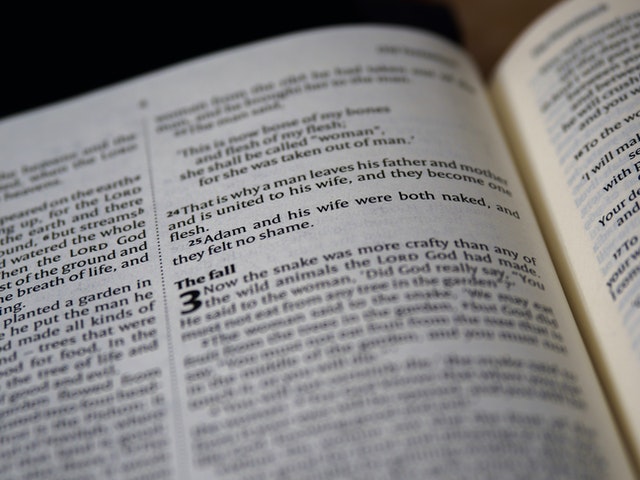See Series Home Here
This is our first post in the “Can You Trust the Bible?” series. We start with considering what the Bible claims to be. Now, you may ask, “Why would we start here? There are so many questions out there, why not dive in?” The reason is, before we can say we “trust the Bible,” we have to know what it claims. Think of it this way. If your phone’s GPS had a message that said “This GPS is 65% accurate,” you may say “I trust my GPS 65% of the time.” And there are those who claim today that the Bible is right some of the time, or it’s right on matters of faith, but not on matters of history. So at the very beginning it’s good for us to see what the Bible claims to be.
I have good news. It claims to be 100% right and accurate in everything it speaks about. We are going to look at two main things in this post when it comes to what the Bible claims to be. We will look at one of the main passages on this from the New Testament, and then we will look at some of what Jesus’ view of the Bible was.
2 Timothy 3:16-17
2 Timothy 3:16-17 is one of the main passages in the Bible that speaks about what the Bible claims to be. You may read it below
All Scripture is inspired by God and profitable for teaching, for reproof, for correction, for training in righteousness; so that the man of God may be adequate, equipped for every good work. (NASB)
Three truths come from these verses. One is clearly that the Bible is “inspired” or more literally, “God-breathed.” The Bible says that all Scripture is the very Word of God. This is taught in many different places (2 Peter 1:20-21; Acts 1:20 and then 1:16, to only list a few) but this is the most well known. When you open your Bible, you are not opening simply another book. You are opening a book that claims to be the very Word of God.
From this we infer that the Bible is true (more on this in a minute). If the Bible is God’s Word, and seeing that it is of course true that God cannot lie or be mistaken, it follows that God’s Word must be true too. Every single thing it speaks on is true. One objection to this is to say that sinful man wrote the Bible, therefore it couldn’t be all true. And yet, as it’s been said, you can draw a straight line with a crooked stick. The Holy Spirit of God worked in the men who wrote the Bible to make sure all things they said were true and accurate.
We also see from 2 Timothy 3:17 that the Bible is sufficient, or in other words, that the Bible is all we need. Yes, it can be very good to read other good books. But these books don’t “add” to the Bible, but can show us truths that were already in Scripture that we didn’t see. Verse 17 said “so that the man of God may be adequate, equipped for every good work” (NASB). If the Bible makes the man of God ready for “every” good work then that means that the Bible is sufficient.
Jesus’ view of Scripture
What was Jesus’ view of Scripture? His view goes right with what Paul said in 2 Timothy 3:16-17. Below is a sampling of what He believed that the Scriptures were.
1. Absolutely Necessary. As man lives from bread, so man must live from God’s Word (Matthew 4:4).
2. All true. He believed all Scripture, even the smallest parts, would be fulfilled, and were true (Matthew 5:18; John 17:17).
3. The final authority. When the pharisees began to debate Jesus, what did He turn to as the final authority? The Scriptures (Matthew 19:3-4).
4. Clear. Jesus believed that we should be able to understand the Bible when we read it (Matthew 19:4).
5. God’s Word. Jesus believed that the commands that the Bible gives were God’s Word (Mark 7:9-13).
6. To be believed. Jesus rebuked some who were slow to believe everything the Bible said about Him (Luke 24:25). He expects us to believe the Bible. Jesus believed in Jonah (Matthew 12:39-41), and He believed in creation (Matthew 19:4), to name only two truths He believed.
The Bible and Jesus are clear. The Bible claims to be God’s Word and to be true on all points. This is our starting place in our study. The Bible is the very Word of God.


Amen. The Bible is our only rule of faith and practice.
That is right. Good to hear from you. Praise be to the Lord.